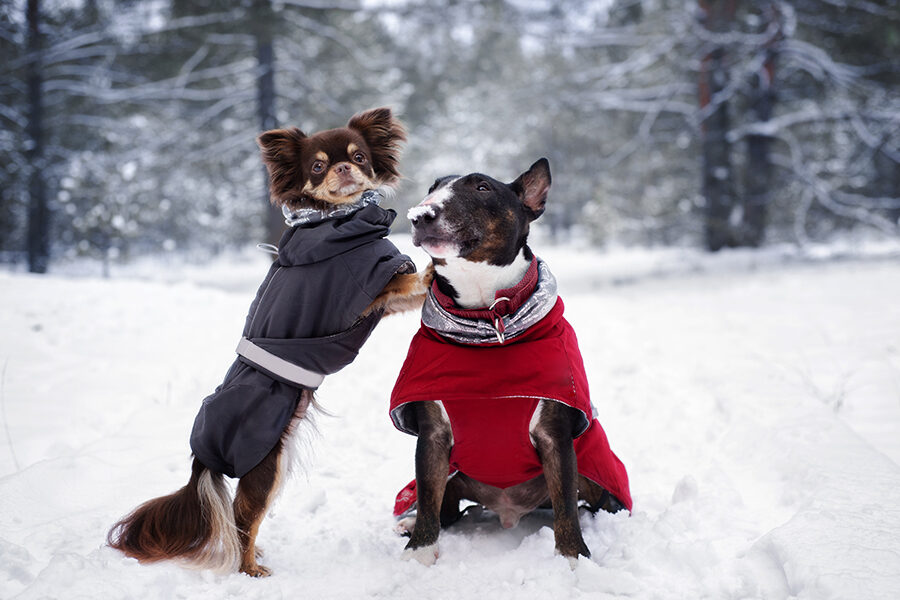The cold breeze, the snowflakes, and the frozen dewdrops are all indicating that winter is here! But, winter brings a lot of concerns for pet parents. From fretting about investing in winter wear or not, to keeping winter diseases at bay, there’s a lot going on in every pet parent’s mind. Plus, the myths surrounding dogs and winter often make them make wrong decisions. So, in today’s blog, we’ll break some grave winter myths that can put your pet in peril.
Heavy Coated Dogs Do Not Need Winter Wear – Certain winter breed dogs such as Huskies and Malamutes have a thick coat and undercoat that works as a shield against extremely cold weather. Such dogs may not need extra coverage to protect themselves from harsh winters.
However, most short-haired dogs would benefit a lot from dog jackets, sweaters and mufflers. Moreover, even dogs with long hair may need winter wear to prevent the snow from clinging to their hair and increasing the risk of frostbite and hypothermia.
Dehydration in Dogs Cannot Occur in Winter- There is a common misconception that dehydration in dogs can occur only in summer. However, it is not the case. Many dogs show signs of winter dehydration such as excessive sleeping, lethargic body, sunken eyes, and vomiting, which are often overlooked or misdiagnosed by pet owners. If your fido shows such symptoms, it’s better to schedule a vet visit before the symptoms escalate.
Further, to prevent winter dehydration, you should always keep the water bowl of your dog filled. If it is out in the yard, make sure your dog doesn’t lick/eat frozen water. Also, while going for walks, always take a water bottle, which is at room temperature, along with their water bowl.
Protection From Fleas and Ticks Is Not Needed in Winter – Although winter can offer a respite from fleas and ticks, it is not always the case.
If you live in extremely colder regions with cold weather for a continuous three to four weeks, you may be fret free from ticks and fleas. However, if you live in less cold regions or ones with on-and-off winter, it’s better to continue with the tick and flea regimen even in winter.
Dogs Do Not Need Care of Their Paws- Strolling or playing in the snow barefoot can be disastrous for your fido’s paws. They might get cuts from ice and jagged snow and winter salt can get accumulated in the hairy parts of their paws. If left unchecked, your dog can lick these salts and get sick.
Thus, it is advisable to invest in winter boots to protect the paws of your four-legged friends. If not, you can even make a routine to rinse their leg in lukewarm water after a walk and trim their paw hair.
You can even massage a few drops of olive or coconut oil at night to their paws.
Dogs Don’t Need Exercise in Winter- Taking your dog for a walk in the freezing cold is more of a struggle for the pet parent than the pet herself, isn’t it?
Winter season can affect the behaviour of your fido. If she loves winter, she would be enthusiastic about going out. If she doesn’t, it would be a heck of a task to take her outdoors. Either way, you don’t want your dog to get an extra layer of fat, do you? So, exercise is essential even in winter.
Dog’s Excreta Can Dissolve in the Snow- A lot of people think that dogs’ excreta can dissolve on its own in snow and thus they do not pick up after their pup. This is very wrong. The waste stays in the snow. It may get hidden but not dissolve. It attracts bacteria and poses a grave health concern for fellow dogs. Thus, as a responsible pet parent, you must always pick up after your dog.







